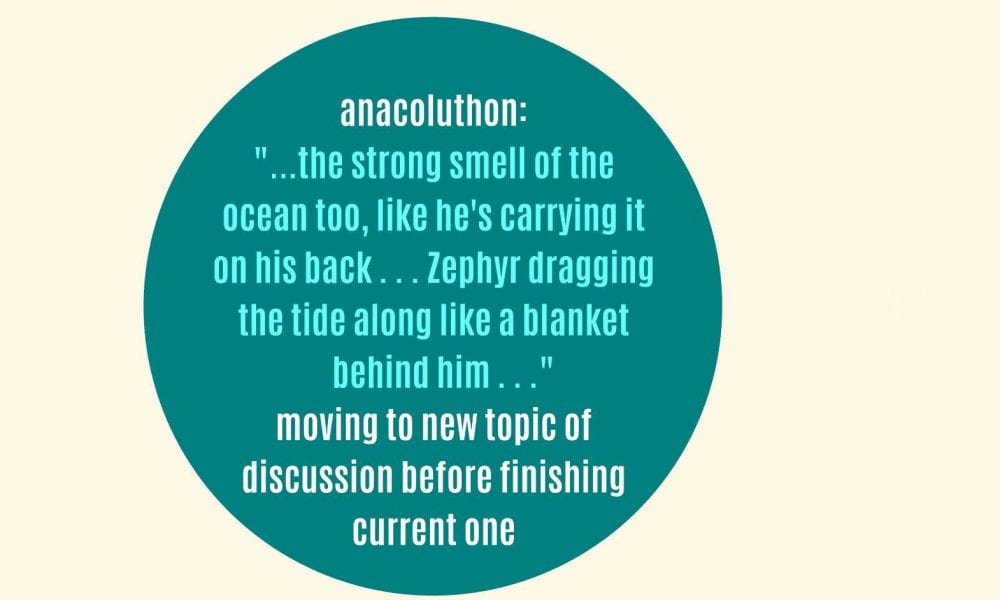Getting to know the author:
Interviewer: Hi Jandy, Thanks so much for speaking with us today.
Jandy: No problem!
I: I guess let’s start this off by giving our listeners some background information on you. Where did you grow up?
J: I was actually born in New York, and spent some of my childhood in Boston. But my family moved to San Diego when I was 12 and I went to high school here. Right after college, I drove west with some friends and we stopped when we could drive no longer. That was 27 years ago, and I am still madly in love with Northern California. I feel like it’s a kind of mythical place.
I: That sounds amazing. I understand you’ve collected quite a few degrees along the way, would you mind telling us what they are?
J: I have a B.A. from Cornell [in comparative literature], an MFA in poetry from Brown, and another MFA from Vermont College. What I really want now is to get a Ph.D. in art history. I’m actually fascinated by art history, and one of my books, I’ll Give You The Sun, was inspired by this passion of mine. In a lot of ways, I wound up writing Sun instead of getting the Ph.D. in art history. It explores the ideas that I was interested in going to school for and it was much cheaper. I had to do a lot of research for this novel and one of the things I did was take a sculpting class. I had this idea that sculpting was all Michelangelo, all tap-tap-tapping, and I was so wrong. It’s totally butch and badass. The class was held outside and there were power drills and electric saws and gas masks. It gave me tons of insight into [characters from the book], and how sculptors are looking for the art that is trapped in the stone. That became a metaphor for the novel – the need to break free. Find the angel in the marble and set it free.
I: One of the characters in your book, I’ll Give You the Sun, is very superstitious. Where did you draw inspiration from for her character?
J: Well, I am insanely superstitious. All the women in my family are, beginning with my grandmother who would leave red ribbons under the beds and taught us how to find four-leaf clovers. And just a fun fact – I’m also a hypochondriac.
I: A lot of the superstitions you mention in your book are kind of far out. Do you have any little-known remedies for writer’s block?
J: Well, for my last book, I wrote the entire thing in a pitch-black room with earplugs in. The only available light was the light coming from the computer screen. The UPS guy would ring the doorbell and I’d appear with these huge eyes. He probably thought I was a mole. This went on for more than three years.
I: Was the idea to eliminate distractions?
J: Probably. I’m not sure. Really, I have no idea, but it worked. I was able to completely block out my life and that allowed me to get so deep into the characters’ various points of view and make sure each voice was completely distinct. I wrote Noah’s story, start to finish, and then Jude’s story, start to finish, without referring back to Noah’s. I actually locked Noah’s file so I wouldn’t go in it. There was something about being in that dark room like a lunatic, not letting my world in at all, that allowed me to stay in their story.
I: That sounds like it took a lot of self-control. Do you have any advice for writers out there who couldn’t last three years in a dark room?
J: Yeah, for sure. My top ones would be:
- Be yourself – What makes your voice unique is simply the fact that you’re you, so be yourself completely and fearlessly in your writing. Get your personality on the page. Dive into your passions, sorrows, joys, idiosyncrasies, insights, your personal myths, monsters and miracles. This doesn’t mean you need to write about yourself, you just need to write like yourself. Only you can be you and
- Throw rocks at your characters – Someone smart once said: Not only do you have to chase your characters up trees, but once they’re up there, you need to throw rocks at them. Characters need to get into big trouble. Do not protect them or care what readers will think of them. Conflict, whether internal or external, makes stories.
- Writing is revising – As Anne Lamott advises in her wonderful book on writing, Bird by Bird: Allow yourself to write a terrible first draft. Then you will revise, revise, and revise some more. But you need that first draft to begin the real work of writing a novel.
- Curb toward joy – When I was in graduate school, I took a literature class for writers with Edmund White. One day in lecture he talked about how writers can get gloomy: always alone, tapping away at their keyboards for years, often with no support or feedback, and so to compensate for the potential dreariness that might seep into the work purely circumstantially writers might remember to curb toward joy. This idea hit me like lightning—both to do with writing and living—and has stayed with me since.
- Have a Funnel Head – Let everything that compels you fall into your mind, into your story. If Picasso hadn’t stepped out of the rain one day into the Paris Museum of Ethnography, he might never have seen the African masks that inspired his Les Demoiselles d’Avignon and there might never have been cubism. Beg/borrow/steal. Be a collector of the amazing. Shake the world up in your head/heart and let it out all covered in you.
- Kill your darlings – An oldie but goodie. Samuel Johnson wrote, “When you come across a passage you think is particularly fine, strike it out.” Love this. Don’t be writerly, be you. Also, be ruthless. Chuck anything that isn’t serving the story.
- Take your time and to thine own self be true – Don’t rush and don’t feel pressure to show or send your work out until it’s ready. Do not think about the market. Write the story you must write and take the time needed to tell it the best way you possibly can.
- Remember writing is magic – If you write fiction you get to live so many lives in your one lifetime. This is brilliant sorcery—enjoy it!
- Read, Read, Read – And obviously, read everything you can get your hands on
I: Thanks so much Jandy, this has been really inspiring.
J: My pleasure!
Note: this interview is a compilation of information derived from various interviews and biographical websites.
Emulation:
my messy, raw rendition of Jandy




















